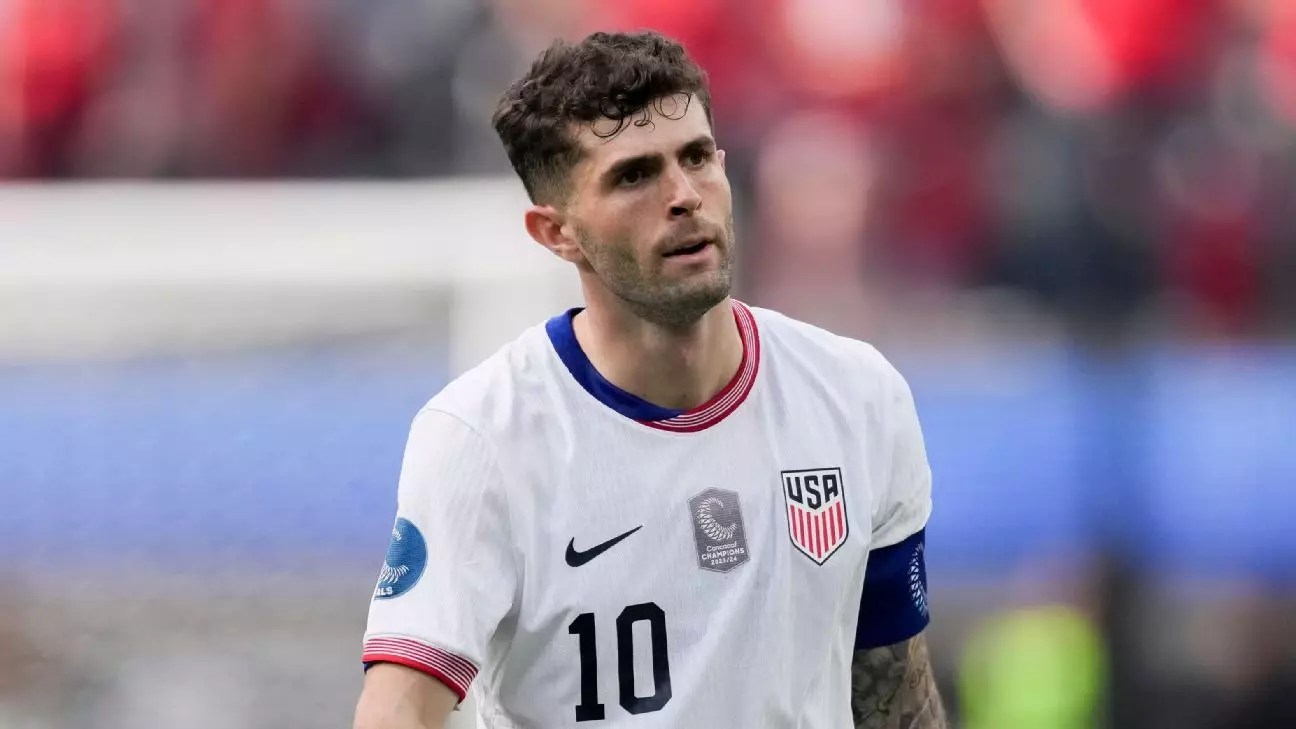In the world of sports, opinions often clash, and moments like these can spark heated debates. Recently, U.S. soccer icon Landon Donovan expressed his discontent regarding Christian Pulisic’s choice to skip the upcoming Gold Cup. Donovan’s comments came during a broadcast and were aimed not just at Pulisic but at the mindset of modern soccer players. He emphasized the importance of national duty and what it means to wear the national jersey. Yet, this viewpoint overlooks one crucial aspect of professional athletics: the necessity of rest.
Pulisic’s decision to prioritize recovery after an arduous season with AC Milan may have drawn ire from some, including Donovan, but it speaks to a broader understanding of player welfare. In an era marked by an intense competition schedule and physical demand, prioritizing health should never be seen as weakness or lack of commitment. Instead, such decisions reflect a mature understanding of the sport’s toll on the body and mind.
The Historical Context of Player Recovery
Donovan’s history serves as an irony that many seem to overlook. In the 2012-13 season, Donovan took a sabbatical after battling physical and mental fatigue. His time away was crucial for his reset, yet it ultimately hindered his presence in the 2014 World Cup, highlighting the complex interplay between player wellness and team commitments. Interestingly, Mark Pulisic invoked this history in response to Donovan’s critiques by showcasing responses from AI. Just as Donovan needed his break, the demands on Pulisic to consistently perform and risk injury must be weighed against national pride.
It’s essential to understand that a player’s experience can be vastly different based on their journey, expectations, and the competitive atmosphere surrounding them. As a player matures, they often become more attuned to their own needs. The pressures that defined Donovan’s career during his peak can seem archaic in today’s athletic environment, where mental health is gaining recognition.
Misjudgments and Miscommunication
The notion that a player is somehow “less committed” when choosing to skip crucial tournaments is a problematic and outdated perspective. Critiques like those from Donovan imply that there is only one measure of loyalty — to play through exhaustion and weariness for the sake of national pride. However, Pulisic’s proactive approach can be interpreted as an intelligent strategy, potentially prolonging his career and maintaining his effectiveness for future endeavors, including the next World Cup.
Moreover, drawing from AI insights to highlight the validity of mental health days only strengthens Mark Pulisic’s argument. In years past, athletes suffered in silence, driven by a romanticized ethos that encourages them to “grind” through adversity without considering the long-term consequences. Pulisic’s choice offers a different narrative — one that embraces balance and prioritizes holistic well-being.
Shifting Mindsets in Professional Sports
In professional sports, we are witnessing a generational shift in how players approach their careers. Today’s athletes, armed with greater awareness and resources, often prioritize their health by making difficult choices that would not have even been considered a decade ago. This evolution is essential — physical prowess is significant, but sustainability is the key to enduring legacy.
With the World Cup approaching, critics might argue that every moment counts, but readiness, in terms of both physical and mental state, ultimately dictates performance. Just as teams often reassess strategies to adapt to the changing landscape of the game, players must take ownership of their careers and personal well-being.
Looking Ahead: The Future of American Soccer
As the landscape of soccer continues to evolve in the U.S., the debate surrounding player wellness versus national duty will undoubtedly persist. When users like Alexi Lalas weigh in with criticism, they inadvertently open a dialogue that could be just as pivotal as any play on the field. Acknowledging the demands that players face and respecting their decisions will ultimately pave the way for a healthier environment for both athletes and fans alike.
The road toward a more inclusive understanding of player welfare is fraught with challenges, but a crucial starting point lies in recognizing the broader implications of rest, both for the individual player and the team as a whole. Embracing change and understanding that each athlete might have their unique path to excellence could lay the groundwork for a new golden age in American soccer.


Leave a Reply